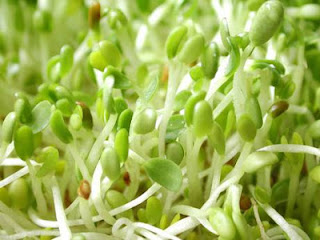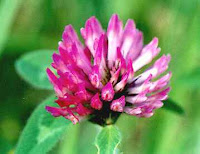Today I came across a picture from facebook.. Here, I'll show you.
I myself have ridges on my nails, and stretch marks out of these ailments, which both are said to be caused by low zinc levels- along with having "chicken skin"- or Keratosis Pilaris, on my arms- which seems to be from lack of EFAs, and is already almost gone, (thanks to a clean diet).
So, naturally, after reading this, I researched more about foods with these minerals/nutrients.. going the extra mile. ;)
From what I have learned; raw nuts, seeds, vegetables and fruits- are all worthy zinc sources.
I also learned that while supplementing with the highest sources of raw vegan zinc rich foods, it's still important to avoid stressing out, boozing, and consuming too much phytic acid from grains and legumes (if you're not a raw foodist), or spinach, (if you are). These decrease the amount of zinc that can be absorbed, and can lead to zinc deficiency- which is the problem here. It's also important to keep your Zinc:Copper ratio around 7 mg zinc per 1 mg of copper (6-8:1). However, raw vegans may not meet these standards due to the large quantities of copper-rich foods they eat. I don't think this is anything to worry about. Just consider including more fruits, vegetables, nuts and seeds that have good zinc content in them. Just losing weight and/(by) keeping your diet low in fat, high in water, and rich in calories from fruit (or cooked [root] vegetables)- you will be doing a major favor for your body within allowing it to heal/live, the way nature intended, and you will see your stretch marks and bumpy skin gradually disappear/pass away, (if these are your issue).
80/10/10 has prismatic benefits!
Anyways, here I have some of the research I did today- regarding which foods are good for zinc deficiency, courtesy of CRONOMETER.COM.
Note: For all nuts and seeds listed here- I have used the amounts recommended on a low-fat (80/10/10) diet, being 1 oz./2 tbsp. as serving, maximum per day. Two tablespoons of a seed/nut butter a couple times a week, or one half of an avocado fruit every day as a maximum, is recommended, also. Although, no fat is necessary.
Chia Seed –
Zinc - 1.30 mg, 8.7%
Copper - .26 mg, 13.1%
O3 - 5.05g
O6 - 1.65g
Pumpkin Seed –
Zinc - 2.21 mg, 14.8%
Copper - .38 mg, 19%
O3 - .03g
O6 - 5.86g
Flax Seed –
Zinc – 1.23 mg, 8.2%
Copper - .35 mg, 17.3%
O3 – 6.47g
O6 – 1.68g
Hemp Seed –
Zinc – 2.80 mg, 18.7%
Copper – n/a
O3 – n/a
O6 – n/a
Sesame Seed –
Zinc – 2.17, 14.5%
Copper – 1.14, 57.1%
O3 - .11g
O6- 5.99g
Watermelon Seed –
Zinc – 2.87 mg, 19.1%
Copper - .19 mg, 9.6%
O3 – none
O6 – 7.87g
Sunflower –
Zinc - .05mg, .3%
Copper - .02mg, .9%
O3 – <.01g
O6 – .23g
Seeds – Watermelon 15:1, Hemp (n/a), Pumpkin 6:1, Sesame 2:1, Chia
5:1, Flax 3.5:1, Sunflower 2.5:1
Cashews –
Zinc – 1.62mg, 10.8%
Copper - .61mg, 30.7%
Almonds –
Zinc - .87mg, 5.8%
Copper - .28mg, 14.1%
Peanuts –
Zinc - .92mg, 6.1%
Copper - .32mg, 16%
Walnuts –
Zinc – .87mg, 5.8%
Copper – .44mg, 22.2%
Macadamia –
Zinc - .36mg, 2.4%
Copper - .21mg, 10.6%
Brazil –
Zinc - 1.15mg, 7.7%
Copper - .49mg, 24.7%
Pecans –
Zinc – 1.27mg, 8.5%
Copper - .34 mg, 16.8%
1 Med. Coconut’s Meat
–
Zinc – 4.37mg, 29.1%
Copper – 1.73mg, 86.3%
1 oz. Coconut meat,
shredded –
Zinc - .31mg, 2.1%
Copper - .12mg, 6.2%
Hazelnuts –
Zinc - .69mg, 4.6%
Copper - .46mg, 24.2%
Pine Nuts –
Zinc – 1.81mg, 12%
Copper - .37 mg, 18.5%
Pistachio –
Zinc - .62mg, 4.1%
Copper - .36mg, 18.2%
Chestnuts –
Zinc - .24mg, 1.6%
Copper - .10mg, 5.1%
Nuts – Pine Nuts 5:1, Cashews 3:1, Pecans 4:1, Brazil
2:1, Peanuts 3:1, Almonds 3:1, Walnuts 2:1, Hazelnuts 1.5:1, Pistachio 2:1, Macadamia
2:1, Coconut 2.5:1, Chestnuts 2:1
Crimini – 10 mushrooms
Zinc – 2.20mg, 14.7%
Copper – 1mg, 50%
Shiitake – 10 mushrooms (must cook)
Zinc – 1.96mg, 13%
Copper – .27mg, 13.5%
Mushrooms – Crimini 2:1, Shiitake 7:1.
Spinach 10 oz.
package –
Zinc – 1.51mg, 10%
Copper - .37mg, 18.5%
Asparagus – 10 spears
(med)
Zinc – .86mg, 5.6%
Copper – .30mg, 15.1%
Green Peas – 1 cup
Zinc – 1.10mg, 7.3%
Copper – .17mg, 8.3%
Alfalfa Sprouts – 1
cup
Zinc – .30 mg, 2%
Copper – .05mg, 2.6%
Swiss Chard – 5 leaves
Zinc - .86mg, 5.8%
Copper - .43mg, 21.5%
Parsley – 20 sprigs
Zinc - .21mg, 1.4%
Copper- .03mg, 1.5%
Endive – 1 head
Zinc – 4.05mg, 27%
Copper – .51 mg, 25.4%
Avocado – 1 fruit
Zinc - .92mg, 6.2%
Copper - .23mg, 11.6%
Chives – 4 tbsp.
Zinc - .07mg, .4%
Copper - .02mg, .9%
Vegetables – Endive 8:1, Parsley 7:1, Green peas 6:1, Alfalfa Sprouts 6:1, Avocado 4:1, Spinach 4:1, Chives 3.5:1, Asparagus 3:1, Swiss Chard 2:1.
Coconut Sugar - 100g (just under 8 tbsp.)
Zinc - 2mg, 12.5%
Copper - .23mg, 26%
(Grade B) Maple Syrup - 100g (just under 8 tbsp.)
Zinc - 4.2mg, 25%
Copper - .1mg, 0%
Sweeteners – Maple Syrup 42:1, Coconut Sugar 9:1.
Note: I have used my default recommendations on Cronometer, (which is set to 'LFRV/30bananasaday.com' for my 'Micro Nutrient Targets'.) Thus, the percentages above reflect a daily minimum of 16 milligrams of zinc. This is a good target for people with a zinc deficiency.
Coconut Sugar - 100g (just under 8 tbsp.)
Zinc - 2mg, 12.5%
Copper - .23mg, 26%
(Grade B) Maple Syrup - 100g (just under 8 tbsp.)
Zinc - 4.2mg, 25%
Copper - .1mg, 0%
Sweeteners – Maple Syrup 42:1, Coconut Sugar 9:1.
Note: I have used my default recommendations on Cronometer, (which is set to 'LFRV/30bananasaday.com' for my 'Micro Nutrient Targets'.) Thus, the percentages above reflect a daily minimum of 16 milligrams of zinc. This is a good target for people with a zinc deficiency.
 |
| http://realfoodforlife.com/pumpkin-seeds-powerfoods-benefits/ |
From the above, it's apparent that eating a serving of Watermelon seeds (19.1% Daily Value), which are actually popular in other parts of the world (Eastern Asia), will do a world of good for zinc deficiencies. Pumpkin seeds (14.8%), which I also recommend, come in 3rd after hemp seeds (18.7%), and before pine nuts (12%).
For mushrooms, Shiitake are outstanding. Yet, I found out that they must be cooked. So, for raw foodies, I recommend the Crimini, which actually have a greater daily value, just not such a great zinc/copper ratio.
 |
| You may want to (click) READ THIS. |
 |
| Crimini "Button" Mushrooms - Benefits |
Vegetables like Endive, Green Peas, Parsley and Alfalfa Sprouts are all good choices, as well.
 |
| http://nummynims.wordpress.com/2009/08/08/52-with-a-twist/endive/ |
 |
| Excellent Link. |
 |
| Cool. |
 |
| http://allnaturalannie.com/2011/09/parsley-breast-health/ |
--
Wow, I am surprised. After finding out about the excellent sources of zinc in coconut sugar -- as dehydrated coconut blossom nectar -- and maple syrup, I have two more great options towards easily and deliciously getting my zinc in! I bet you could make a wicked lemonade, too. ;)
Research:
"Calcium, magnesium and zinc - the sedative minerals. Zinc, along with calcium and magnesium, are called sedatives because all three help inhibit excessive sympathetic nervous system activity. They all inhibit excessive brain activity. Zinc, in fact, is considered by some authorities to be a calming neurotransmitter in its own right."
"1. Pumpkin seedsNot only are they extremely high in zinc, pumpkin seeds also play a role in the prevention of prostate cancer. Pumpkin seeds also support general immune system health. For maximum zinc-intake, the seeds can be taken raw, as roasting them can deplete zinc intake."
"The Recommended Daily Allowance (RDA) for zinc is 11 mg for men and 8 mg for women. However, those that are zinc deficient, not eating a diet rich in zinc, or have a prostate disorder should take 15 mg of zinc daily. Because of the lower absorption of zinc from plants, vegetarians may need about 50% more zinc. Since zinc can interfere with copper absorption, any zinc supplement should contain 1 to 2 mg of copper."
"What can high-zinc foods do for you?
Help balance blood sugarStabilize your metabolic ratePrevent a weakened immune systemSupport an optimal sense of smell and taste"
"...if you eat a lot of grains and legumes that are high in phytic acid, you have a greater than average daily requirement for zinc, as phytic acid is known to decrease the absorption of zinc into the blood stream.Eating too many grains, spinach, and rhubarb can increase your risk of developing a zinc deficiency. Alcohol, sugar, stress, inadequate protein intake, and taking high doses of calcium in supplement form can also lead to a zinc deficiency.
Toxicity
Getting too much zinc in your diet can actually weaken the strength of your immune system. Taking more than 45 mg of zinc per day can lead to a copper deficiency. 80 mg of zinc per day over the long term can lead to an increased risk of cardiovascular disease via a decrease in blood levels of HDL. Greater than 150 mg of zinc per day can weaken your immune system. Nausea, an upset stomach, and vomitting are strong signs of zinc toxicity if you are taking a zinc supplement. For these reasons, I recommend that you stay away from zinc supplements and obtain zinc from a variety of whole, minimally processed foods."
- Dr. Ben Kim
Zinc (Zn) Content Rich Natural Raw Foods
http://www.endmemo.com/health/nutri2/Zn_nature.php
"In addition to it, zinc is also concerned with collagen synthesis. This further aids in normalizing the amount of skin oils and maintenance of a healthy skin."
http://www.organicfacts.net/health-benefits/minerals/health-benefits-of-zinc.html
"Only 20% of of the zinc present in the diet is actually absorbed by the body."
"Dietary fibre and phytic acid found in bran, wholegrain cereals, pulses and nuts, inhibit zinc absorption." "Phytic acid forms a highly insoluble complex with zinc, which the body cannot absorb."
"Cooking processes can reduce the adverse effects of both phytic acid and dietary fibre on zinc absorption."
"It is further needed for cell division, and is needed by the tissue of the hair, nails, and skin to be in top form."
"It also seems as if zinc helps to control the oil glands, and is also required for the synthesis of protein and collagen - which is great for wound healing and a healthy skin."
"There is a shortage of zinc in many people's diets, since zinc is destroyed in the milling process and is also lost in cooking."
http://www.healthvitaminsguide.com/minerals/zinc.htm
"In addition to it, zinc is also concerned with collagen synthesis. This further aids in normalizing the amount of skin oils and maintenance of a healthy skin."
http://www.organicfacts.net/health-benefits/minerals/health-benefits-of-zinc.html
"Only 20% of of the zinc present in the diet is actually absorbed by the body."
"Dietary fibre and phytic acid found in bran, wholegrain cereals, pulses and nuts, inhibit zinc absorption." "Phytic acid forms a highly insoluble complex with zinc, which the body cannot absorb."
"Cooking processes can reduce the adverse effects of both phytic acid and dietary fibre on zinc absorption."
"It is further needed for cell division, and is needed by the tissue of the hair, nails, and skin to be in top form."
"It also seems as if zinc helps to control the oil glands, and is also required for the synthesis of protein and collagen - which is great for wound healing and a healthy skin."
"There is a shortage of zinc in many people's diets, since zinc is destroyed in the milling process and is also lost in cooking."
http://www.healthvitaminsguide.com/minerals/zinc.htm
"Zinc can help improve the health of your skin and hair."
So, there we are, for now. :-) Rawesome!



























































